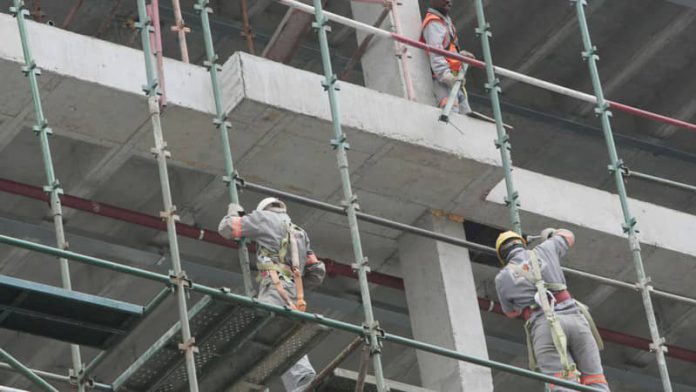Minister for Works and Infrastructure Sihle Zikalala told a panel on unpacking the construction mafia issues, that the government was establishing a special task force to address the growing phenomenon, but also challenged the construction industry to identify and allocate community sub-contracts from early stages of project development.
He called for the establishment of a construction master plan to articulate the industry pathway and alluded to the webinar discussion as a significant part of the strategy to be developed for the sector that was yet in silo status.
This as the construction industry puts the onus on government to beef up security clusters to meet the increasing challenge, which has cost the economy more than R100 billion in the past five years.
Public and private sector construction costs of projects are inevitably jacked up to cater for extortions and disruptions by the construction mafia.
“Decisive action must be taken, there have been 605 cases reported thus far, a number of people have been arrested and we must see prosecutions and sentencing. Contractors must refuse to pay bribes and whistleblowers must be protected,” Zikalala said.
The industry has called for building contracts to from now on to be amended to cater for the delays and demands on sites, saying that it should not be robbed of earnings by social disruptions, which were the terrain of government mainly as the client.
Industry said the 30% contingency fee should apply to public and private sector projects in excess of R30 million.
Gregory Mofokeng: Black Business Council (BBC), said: “We need to protect contractors. Standing time for sites disrupted must be paid for. We are not builders and not equipped to deal with social facilitations. Even when the social facilitations have failed, it must be clear that we must be paid.“
The industry said the cost of security was a serious consideration that had to be built into project costs while the government figured out how to deal with the construction mafia.
“As much as the torching of trucks has been declared a national disaster, the hijacking, extortion and violence on building sites should be considered that as well,” the panel, consisting of Zikalala, John Matthews: Construction Alliance SA, an umbrella body of 39 industry bodies, Mofokeng, Euan Massey from MDA Attorneys who sponsored the event, Naeem Rahiman of Business Against Crime and Kile Mteto: SA Women in Plumbing and Trades heard. For example, a school in Umlazi KwaZulu-Natal that has been raided at least seven times, leading to talks of negotiations with the construction mafia by some members of the provincial government.
Gareth Newham, a Coordinator at the Institute of Security Studies, said the construction mafia was diverse in its approach, connected around the country, embedded, particularly to those in political power, entrepreneurial and extremely violent.
“It does not help too much to arrest the foot soldiers who are at the lower economic rungs, the kingpins are not feeling the effects of poverty. The state’s capacity has diminished over time. From 2012 to 2020 the capacity dropped to below 55% yet the budget went up 86% to a R108 billion budget.
“Only 14% of cases have been solved this far,” Newham said.
Massey said: “Who carries the cost? The taxpayer in what it takes from the fiscus, the contractors who cannot replace the time and costs. We must take lessons from the mining industry which took the issue head on by involving the local communities and identifying areas of participation.”
The work executed did not justify the 30% requirement to extortion. The proper targets to be awarded the contracts must be identified and awarded to entities that would utilise the opportunity for growth, Massey said.












